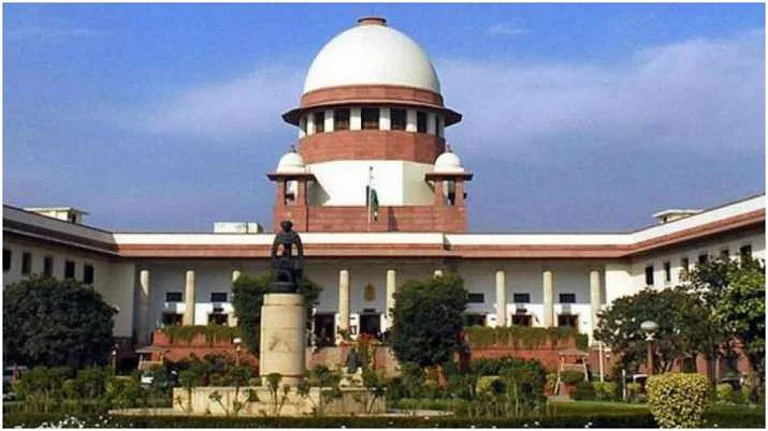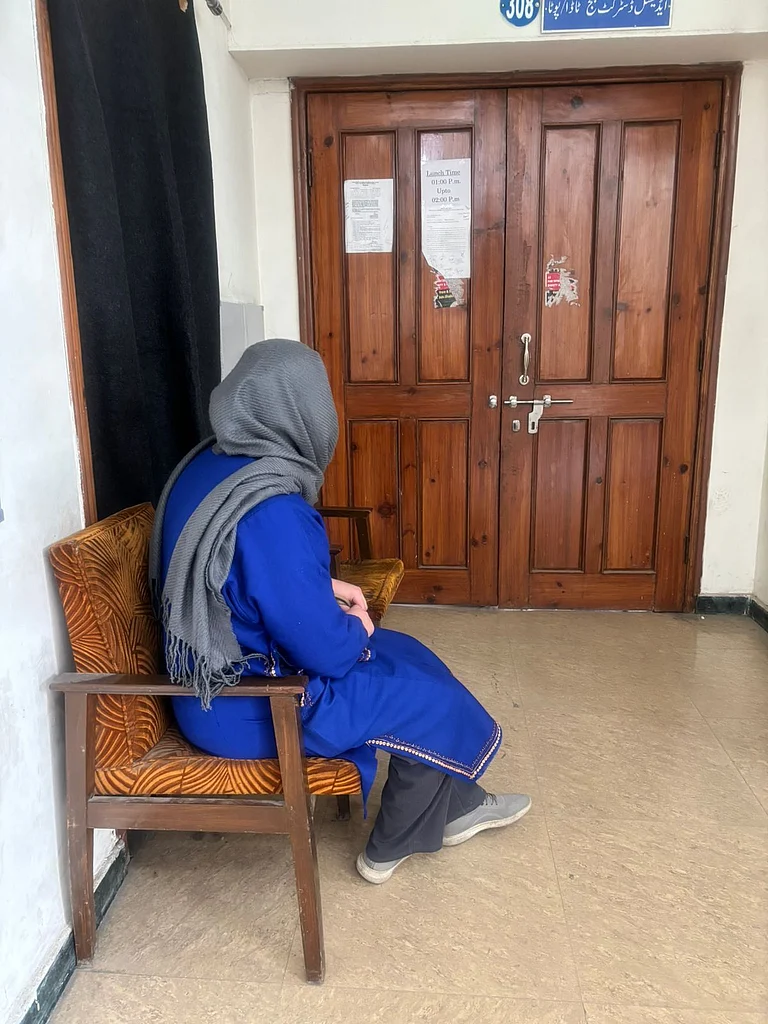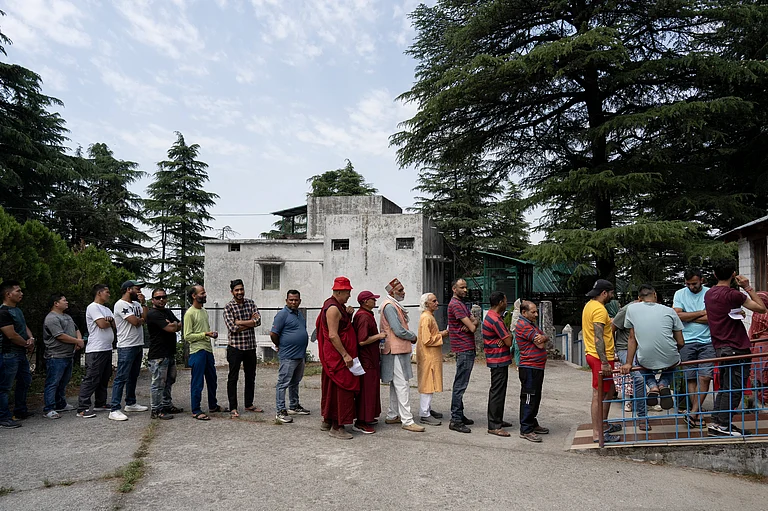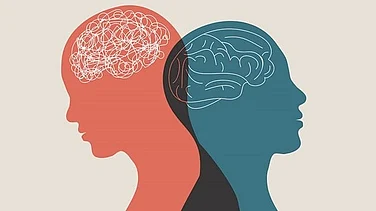
Unlike higher courts, district courts grappling with Mental Health Act.
SC has ruled jailing the mental unwell as unconstitutional.
Aruna Shanbaug SC plea led to guidelines for passive euthanasia.
Mental health in India remains a sensitive issue for the government and courts. Despite repeated Supreme Court interventions over violations of the Mental Health Act, breaches persist. These landmark judgements highlight how institutions and authorities have been held accountable by the judiciary.
“The Supreme Court and High Courts are very proactive, but district courts require more sensitisation for the stakeholders, including the judges, because the Mental Health is a new Act. The judiciary is a major stakeholder in these matters. We must do a lot as per the sensitisation of judges and public prosecutors in the district courts,” said advocate Gaurav Bansal.
Sheela Barse v. Union of India & Ors. (1992, Supreme Court)
In the Sheela Barse case, the Supreme Court took note of mentally ill persons being detained in West Bengal prisons under the archaic Lunacy Act of 1912. Barse, a social activist, alleged that the detainees had been wrongfully confined in inhumane conditions and had not undergone any psychiatric evaluation. The court issued notice and constituted a two-member panel to look into the matter. The panel’s investigation flagged systemic lapses across jails and mental health institutions in the country, including delays in psychiatric assessments for undertrials, instances of patients being kept in chains inside prisons, and in several cases, a complete lack of medical facilities. It also found that some individuals had been incarcerated indefinitely under outdated mental health laws.
The SC said that jailing people in these circumstances was unconstitutional and mandated medical assessments of the prisoners. The top court also directed states to implement the Mental Health Act, 1987 and establish visiting boards for oversight. Most importantly, the apex court held that only mental health institutions—not jails or prisons—should hold mentally ill people.
Rakesh Chandra Narayan v. State of Bihar & Ors. (1988, Supreme Court)
In the 1980s, a PIL was initiated after insanitary and dehumanising conditions at Ranchi Mental Hospital became public. The SC took up the case suo motu and ordered inspections of the hospital along with others. The top court described the facility as a “mediaeval torture house” and criticised the hospital’s practice of chaining its patients. While calling for mandatory psychiatric evaluations, the SC said it would continue to supervise the process.
Upendra Baxi v. State of UP (1983, Supreme Court)
The case of Upendra Baxi dealt with the difficult circumstances faced by inmates in protective homes and mental institutions, where they faced violence and were arbitrarily detained. The Court recognised that even institutionalised persons have rights under Article 21, ordered systemic reviews and demanded updated infrastructure in such places. The Court emphasised that it was necessary to retain constitutional oversight even after the closure of such PILs. This ruling laid the groundwork for human rights jurisprudence in mental health care.
Machal Lalung Release Case (Suo Motu notice, 2005 & compensation order)
Machal Lalung spent 54 years in jail and then in a mental asylum without any charge or facing trial. The National Human Rights Commission (NHRC) and local NGOs intervened in 2003, and two years later, the Supreme Court ruled that Lalung’s Article 21 rights had been violated. The top court ordered his release and directed the State to pay him Rs 3 lakh as compensation along with a monthly stipend.
The Supreme Court in the case of Mohd. Anwar reaffirmed that it is the accused who must prove insanity when relying on it as a defence. The top court said that a simple medical diagnosis of insanity was not sufficient and that the accused had to prove their mental state was impaired at the time of the offence to such an extent that they could not understand the legality or illegality of their actions.
Mohd. Anwar v. State (NCT of Delhi) (2014, Supreme Court)
The Supreme Court in the case of Mohd. Anwar reaffirmed that it is the accused who must prove insanity when relying on it as a defence. The top court said that a simple medical diagnosis of insanity was not sufficient and that the accused had to prove their mental state was impaired at the time of the offence to such an extent that they could not understand the legality or illegality of their actions.
State of Maharashtra v. Sindhi @ Raman (2019, Supreme Court)
Building on the Mohd. Anwar judgement, the Supreme Court said that once an accused establishes prima facie mental illness, the prosecution must meet the ‘beyond reasonable doubt’ standard of criminal law to prove they were of sound mind.
Aruna Shanbaug v. Union of India (2011, Supreme Court)
Aruna Shanbaug was a woman in a persistent vegetative state for over 30 years. Her caretakers filed a plea for euthanasia before the top court. The Supreme Court set strict guidelines for passive euthanasia. While not related to mental illness per se, the ruling opened space for addressing issues such as mental capacity, dignity and bioethical choice and established the framework for evaluating cognitive consent in India.
Navtej Singh Johar v. Union of India (2018, Supreme Court)
While decriminalising consensual homosexual relations in reading down Section 377 IPC, the top court relied on the Mental Healthcare Act (MHCA) 2017’s definitions to confirm that homosexuality was not a psychiatric disorder, as the state had argued. The court held that criminalising sexual orientation would violate a person’s rights to equality, privacy, dignity and non-discrimination under the Constitution. The bench included in this judgement the rights of people with mental illnesses. The judgement reinforced MHCA’s anti-discrimination mandate and upheld equal treatment regardless of sexual orientation.
Common Cause v. Union of India (Euthanasia Reference) (2018, Supreme Court)
While overruling its ruling in the Aruna Shanbaug case, the top court clarified that the earlier judgement had deferred too much to medico-legal discretion. This judgement allowed people to have living wills (advance medical directives). The top court also recognised, in this judgement, that suicide was a sign of severe stress and prohibited its legal prosecution, thus decriminalising suicide in India.
In 2025, a PIL was filed before the Supreme Court alleging that a faith-based care home in Uttar Pradesh was chaining its mentally ill patients. The top court intervened under the MHCA 2017. The bench also added the NHRC as a party to the proceedings so it could oversee the enforcement of its orders and directed the Centre to file affidavits showing the establishment of the Central Mental Health Authority (CMHA), State Mental Health Authority (SMHA) and Mental Health Review Boards. The Court said dignified treatment, including freedom from chaining, of the mentally ill was crucial under Article 21. The judgement reaffirmed the state’s responsibility towards the mentally ill.
In its August 21 issue, Every Day I Pray For Love, Outlook collaborated with The Banyan India to take a hard look at the community and care provided to those with mental health disorders in India. From the inmates in mental health facilities across India—Ranchi to Lucknow—to the mental health impact of conflict journalism, to the chronic stress caused by the caste system, our reporters and columnists shed light on and questioned the stigma weighing down the vulnerable communities where mental health disorders are prevalent. This copy appeared in print as 'Safeguarding Rights'.






























